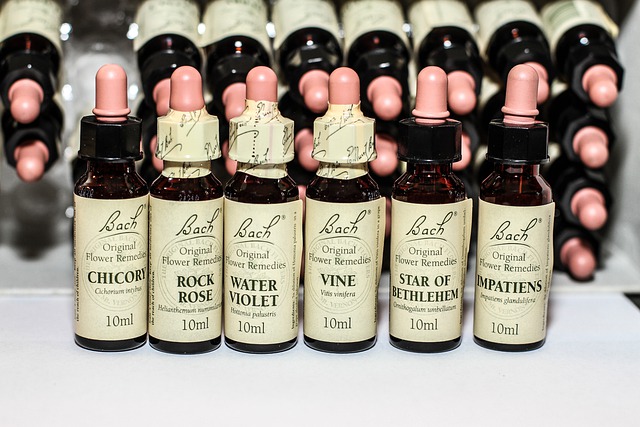 TC writes: “I have a question about Bach Flower Remedies. I am trying to find out if these remedies are considered New Age. I have a few books book about them which state that it “treats the individual not the symptoms / or disease. They work on an emotional condition of the person concerned.” “The effect of taking the remedies is not to suppress negative attitudes but transforms them into positive ones, stimulating self-healing.” Can you let me know what the Church teaches about this product?”
TC writes: “I have a question about Bach Flower Remedies. I am trying to find out if these remedies are considered New Age. I have a few books book about them which state that it “treats the individual not the symptoms / or disease. They work on an emotional condition of the person concerned.” “The effect of taking the remedies is not to suppress negative attitudes but transforms them into positive ones, stimulating self-healing.” Can you let me know what the Church teaches about this product?”
Your hunch about Bach Flower Remedies (BFR) is a good one. This is definitely a form of alternative medicine that incorporates New Age views about energy and healing.
For those of you who are unaware of what these remedies are all about, they were developed in the 1930s by the British physician Dr Edward Bach. According to his website, he was diagnosed with cancer in 1917 and given just three months to live. However, the three months came and went and, still alive, he grew determined to find a more holistic approach to medicine. This quest led him into homeopathy and experimenting with certain flowers. Eventually, he wandered out of the realm of science altogether.
“Just as he had abandoned his home, office and work, Dr Bach began to abandon the scientific method and its reliance on laboratories and reductionism,” the site explains. “He fell back instead on his natural gifts as a healer, and more and more allowed his intuition to guide him to the right plants.”
He eventually landed upon 38 flower-based remedies that allegedly corresponded to 38 negative emotional states which he claimed were relieved in patients who were treated with his flower potions. These mixtures were obtained by opening flower heads that are still fresh with dew, float them on the surface of pure spring water in a glass bowl and let them sit in the sun for a few hours. A second mixture was used for trees and bushes which required branches and leaves to be boiled in water for half an hour.
Here’s where it gets New Agey. In both methods, the plant matter is removed and, according to Bach, the water retains the vibrations or energy of the flower. Bach believed the life force energy or vibration of the plant was somehow transmitted into the tincture and that this vibration interacts on a subtle energy level to “rebalance the conscious and unconscious and dissolve old patterns of behavior,” according to this report by the National Institutes of Health.
Typically, the remedies come in liquid form and are preserved in brandy. To take them, a patient must dilute two drops into a 30 ml dropper bottle and top off with mineral water. From this mixed bottle, a person then takes four drops at least four times a day. The website also recommends that a person put a few drops in a glass of water and sip on it at intervals throughout the day. Two or more remedies might be mixed together “to match your precise mix of emotions.”
For example, the Impatiens flower is used to treat impatience and irritability; the Mimulus flower (such as monkey flowers) are used to treat the fear of known things, shyness, and timidity; the olive plant treats people who are drained of energy. People who suffer from overwhelming guilt are given pine and those who need their “energy” unblocked might try a combination of Wild Oat, Holly and Star of Bethlehem. Dr. Bach also created a “Rescue Remedy” which is a combination of five flowers and is used as an emergency treatment in situations of extreme anxiety or distress.
Although based in England and in centers throughout Europe, the BFR industry makes its products available “over-the-counter “in some countries such as in the U.S. when a typical bottle will cost around $10.
After reviewing the trials done to test the efficacy of BFRs, the NIH concluded that there is no overall benefit to these potions in comparison to placebo. They also found that any available evidence that they do work “has a high risk of bias.”
As for Church teaching about Bach Flower Remedies (and all other unproven alternatives), we believe that there can never be a discrepancy between faith and reason. As the Catechism states, “…[M]ethodical research in all branches of knowledge, provided it is carried out in a truly scientific manner and does not override moral laws, can never conflict with the faith, because the things of the world and the things of faith derive from the same God” [No. 159].
Therefore, because BFR products have never been proven to work, to put one’s faith in them would be considered to be engaging in superstitious medicine.
© All Rights Reserved, Living His Life Abundantly®/Women of Grace® http://www.womenofgrace.com









